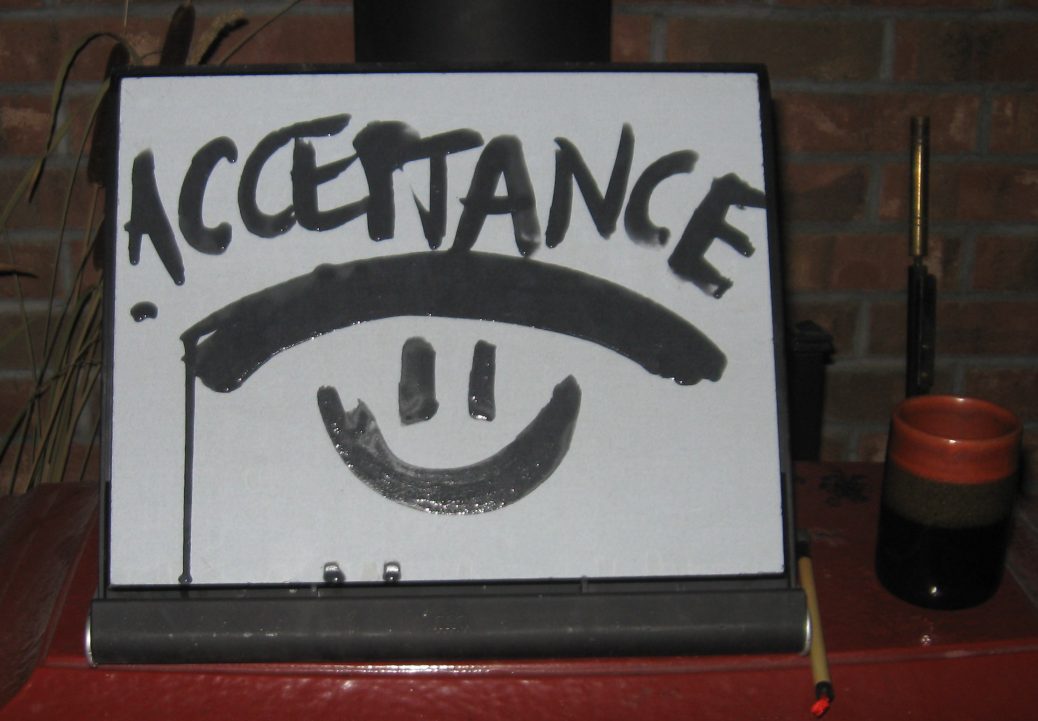When I teach our Natural Approach to Mental Wellness course, we work with the theme of Acceptance. Normally we associate Acceptance with passivity. We certainly don’t think of it as related to Taking Action. But it is related. Let me explain.
In our course, people discussed things that they can’t accept, or, struggle to accept. Here are some examples:
Traumatic problems from the past
Your sibling’s behavior
Aging
Your diagnosis of a serious health problem
People who commit atrocities against others
Global Warming
Feelings of low self-esteem
Aggressive drivers
So much of life is uncontrollable. We can’t control the weather, the traffic, other drivers, elections, losing your hair, feeling worried, or what other people think If . The most controllable aspect of life is what we ourselves do. When we struggle with things we can’t control, we lose time and energy, with very little to show for it. Instead, the energy could be used for:
Writing your novel
Raising money for a worthy cause
Playing with your dog
Gardening
Learning a foreign language
Or anything else that’s important to you.
When we accept what we CAN’T control, we are more free to do what we CAN control. You can’t control your sibling’s behavior but you can act with integrity and kindness toward others. That’s an action you can take, instead of ruminating about what your brother did/said to you last week.
I have a “Buddha Board”. It’s about the size of a standard laptop with a very light grey surface. You write on the board with a traditional calligraphy brush, but instead of using ink you use water. And the writing has the appearance of black ink. But after just a few minutes, the writing begins to fade. And after a few more minutes, it has vanished completely
No matter what you write, the words last only briefly, and then disappear.
During one of our programs several years ago, a participant had the assignment of writing the word acceptance on the board and trying to keep it “alive.” She had a very strong will. Being strong-willed is an asset if you use your energy in a productive way. But if you waste your energy, then being strong-willed works against you. So she would write the word “Acceptance” on the Buddha board and, of course, it would fade, and then she would write it again.
Writing
Fading
Writing
Fading
Now there’s acceptance.
Now it’s gone.
In Japanese Psychology, we use the term, “Arugamama” to describe the state of acceptance. To accept something just as it is. Or to accept someone just as they are.
Of course, it’s one thing to understand the idea of acceptance. It’s another thing to cultivate it and make it a real part of how you are in the world. To accept something is to stop struggling with it. So this is one of the themes we work with in our Mental Wellness program.
Gregg Krech will be teaching the Mental Wellness program from April 17 – May 17, 2024. Gregg is the author of five books, including A Natural Approach to Mental Wellness, and the Amazon best-seller, The Art of Taking Action: Lessons from Japanese Psychology.












